Marc Baltes
Single-Shot Phase Diversity Wavefront Sensing in Deep Turbulence via Metasurface Optics
Oct 24, 2024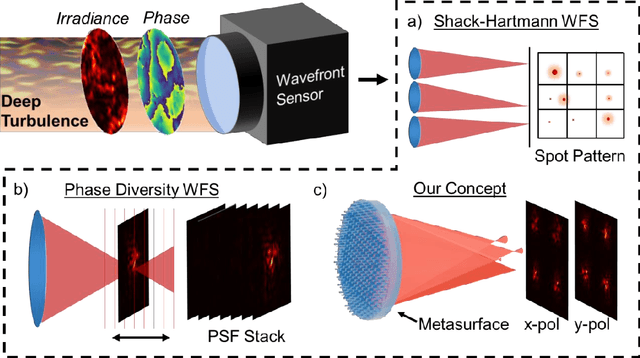
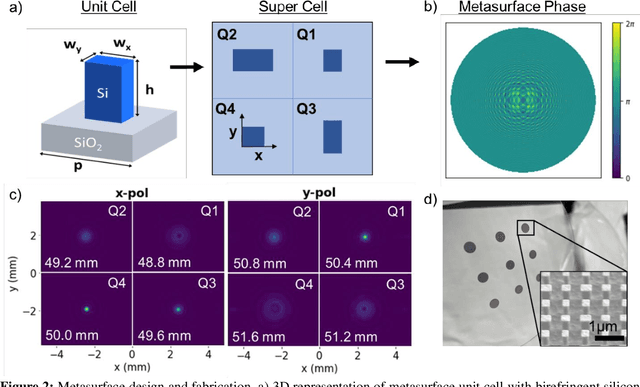
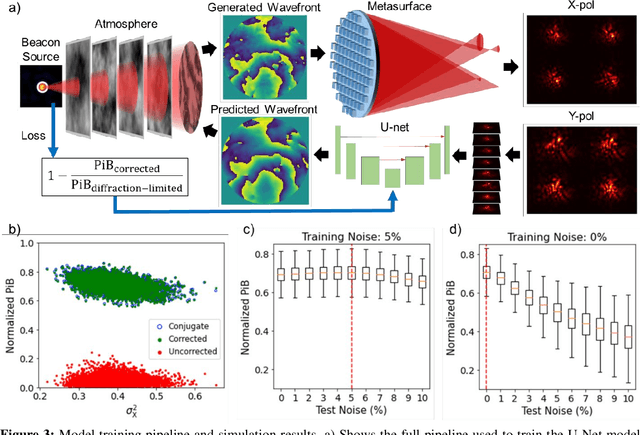
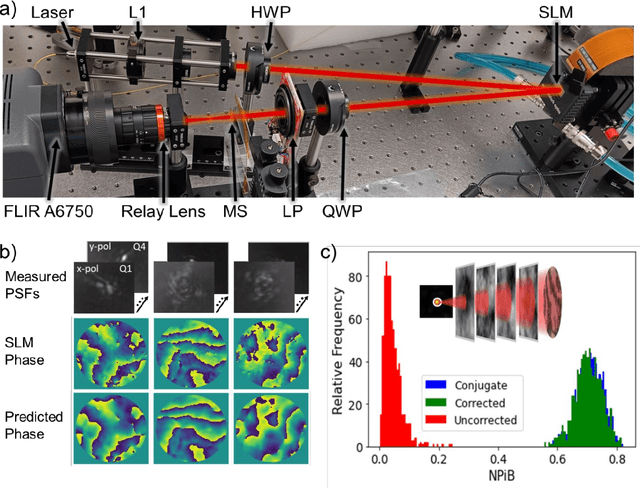
Abstract:Free-space optical communication (FSOC) systems offer high-bandwidth and secure communication with minimal capital costs. Adaptive optics (AO) are typically added to these systems to decrease atmospheric channel losses; however, the performance of traditional AO wavefront sensors degrades in long-range, deep turbulence conditions. Alternative wavefront sensors using phase diversity can successfully reconstruct wavefronts in deep turbulence, but current implementations require bulky setups with high latency. In this work, we employ a nanostructured birefringent metasurface optic that enables low-latency phase diversity wavefront sensing in a compact form factor. We prove the effectiveness of this approach in mid-to-high turbulence (Rytov numbers from 0.2 to 0.6) through simulation and experimental demonstration. In both cases an average 16-fold increase in signal from the corrected beam is obtained. Our approach opens a pathway for compact, robust wavefront sensing that enhances range and accuracy of FSOC systems.
Joint ANN-SNN Co-training for Object Localization and Image Segmentation
Mar 10, 2023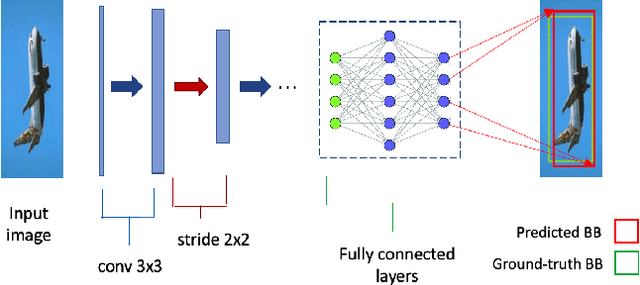

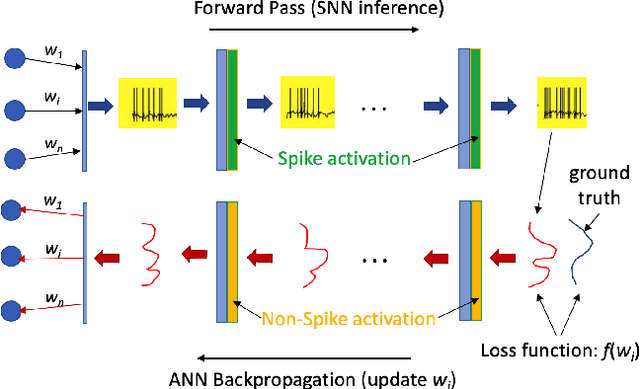

Abstract:The field of machine learning has been greatly transformed with the advancement of deep artificial neural networks (ANNs) and the increased availability of annotated data. Spiking neural networks (SNNs) have recently emerged as a low-power alternative to ANNs due to their sparsity nature. In this work, we propose a novel hybrid ANN-SNN co-training framework to improve the performance of converted SNNs. Our approach is a fine-tuning scheme, conducted through an alternating, forward-backward training procedure. We apply our framework to object detection and image segmentation tasks. Experiments demonstrate the effectiveness of our approach in achieving the design goals.
Hybrid Spiking Neural Network Fine-tuning for Hippocampus Segmentation
Feb 14, 2023



Abstract:Over the past decade, artificial neural networks (ANNs) have made tremendous advances, in part due to the increased availability of annotated data. However, ANNs typically require significant power and memory consumptions to reach their full potential. Spiking neural networks (SNNs) have recently emerged as a low-power alternative to ANNs due to their sparsity nature. SNN, however, are not as easy to train as ANNs. In this work, we propose a hybrid SNN training scheme and apply it to segment human hippocampi from magnetic resonance images. Our approach takes ANN-SNN conversion as an initialization step and relies on spike-based backpropagation to fine-tune the network. Compared with the conversion and direct training solutions, our method has advantages in both segmentation accuracy and training efficiency. Experiments demonstrate the effectiveness of our model in achieving the design goals.
 Add to Chrome
Add to Chrome Add to Firefox
Add to Firefox Add to Edge
Add to Edge